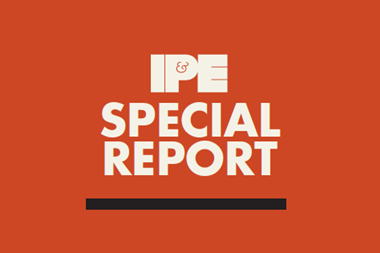Allianz Global Investors (AllianzGI) has not yet agreed the price of investment research with its providers, according to the chief executive of the €498bn asset manager.
It had agreed with sell-side firms in advance that they would settle a price after the end of the first quarter, Andreas Utermann told a press conference on Wednesday.
Uetermann said the manager – part of the giant Allianz insurance group – was in the process of reviewing the first quarter’s activity, including what external investment research it had consumed and what it proposed to pay for it.
It had not entered into agreements with sell-side firms to purchase services.
“We said we’re going to consume what we think we need to consume and monitor that very carefully,” he said. “We’re going to determine what we think we will pay for what we consume. We will have those conversations with our counterparts. Hopefully they will go well and we can agree a fair price.”
If agreement on the price could not be reached, the manager may decide to drop the firm as a research provider, Utermann suggested.
There needed to be a price discovery in the market as to what should be paid for external research as there was a large disparity between the prices being quoted by banks, he said.
Utermann’s comments come amid concerns about implementation of MiFID II, the wide-ranging financial legislation that requires asset managers to pay explicitly for external investment research for the first time.
The ethos of MiFID II
According to Chris Turnbull, co-founder of the Electronic Research Interchange, the response from some asset managers has not been in line with “the spirit” of MiFID II.
He said some asset managers seemed to still be using “broker voting systems” to determine how much to pay each supplier for research consumed, rather than implementing “ex-ante” research payments.
Turnbull told IPE that the “ethos of MiFID” was to have asset managers agree what they would pay for research upfront and for that service to then be delivered.
“The whole thing about research in the view of the regulator was that it’s not linked to execution, therefore it’s not linked to the amount of transactions,” he added.
Different asset managers were taking different approaches and, ultimately, “there is no right or wrong because nobody’s had their processes or how they do things checked,” he said.
Earlier this month Turnbull noted that the Financial Conduct Authority (FCA), the UK regulator, had allowed investors limited three-month trials of broker research content.
Elsewhere, the industry association for independent research providers has said the “current market for research under MiFID II is not functioning effectively” and that this could be to the detriment of the end investors.
According to a statement last week, Euro IRP said more than 60 independent research firms raised their concerns at a meeting in London at the end of February attended by the FCA.
Chris Deavin, chairman of Euro IRP, emphasised that the organisation and its members welcomed the new directive. However, he added that there was genuine concern from its members that the core intent of MiFID II was being undermined by how sell-side and buy-side firms were applying the new rules within “their provision and use of investment research services”.
He added: “More needs to be done now to ensure that a vibrant, independent research sector, offering high-quality, differentiated products and ideas, can flourish going forward.”









